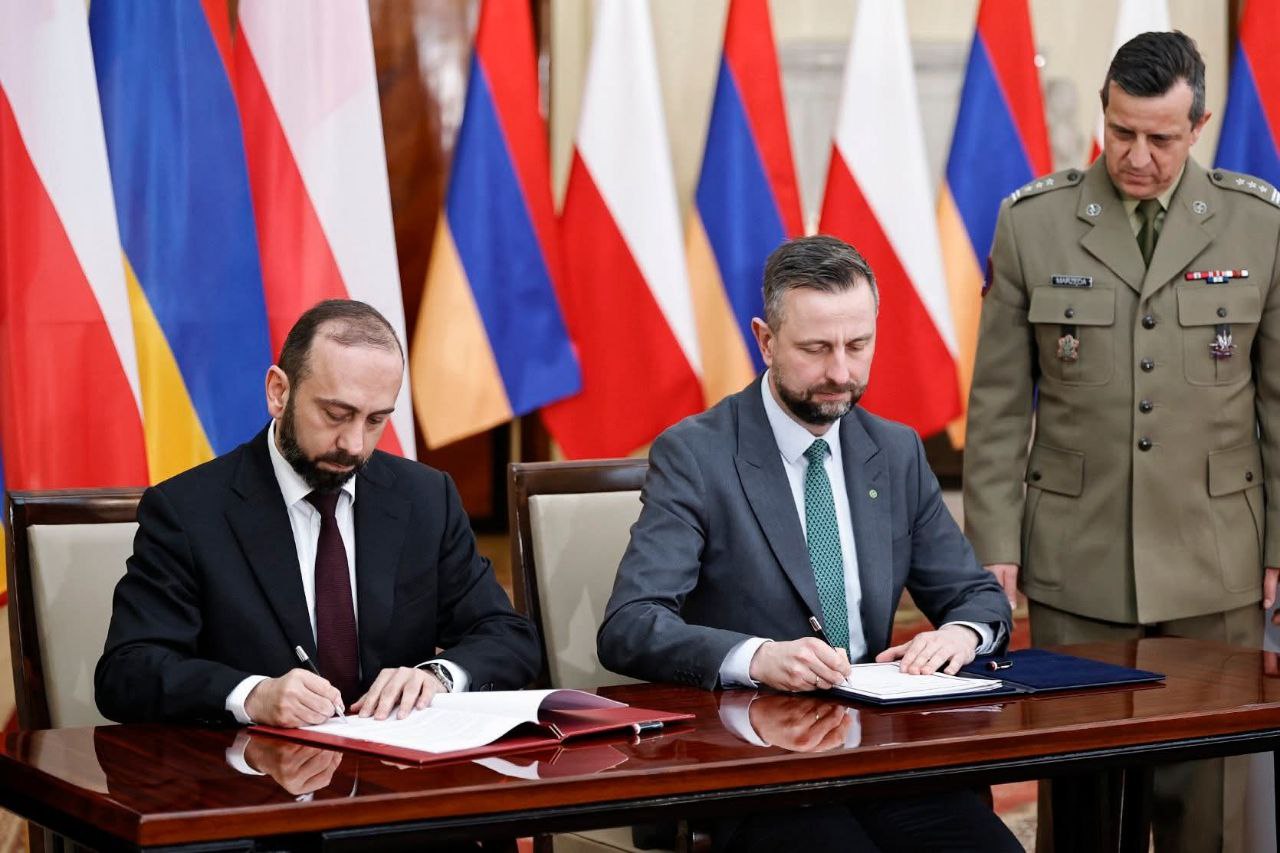Georgia: Protests against the "foreign agents" law. Dozens detained and injured
Georgians against “foreign agents” law
11 people arrested, dozens injured. On April 16, law enforcement officers used pepper spray to disperse a peaceful demonstration and resorted to physical violence against protesters in Tbilisi. Dozens of demonstrators were beaten. Videos circulated by protesters and journalists depicted the particular brutality of law enforcement towards the demonstrators.
Among the injured are journalists from several media outlets.
The large-scale rally outside the parliament commenced at 7:00 PM. Participants, as is customary, arrived bearing flags of Georgia, the European Union, and Ukraine.
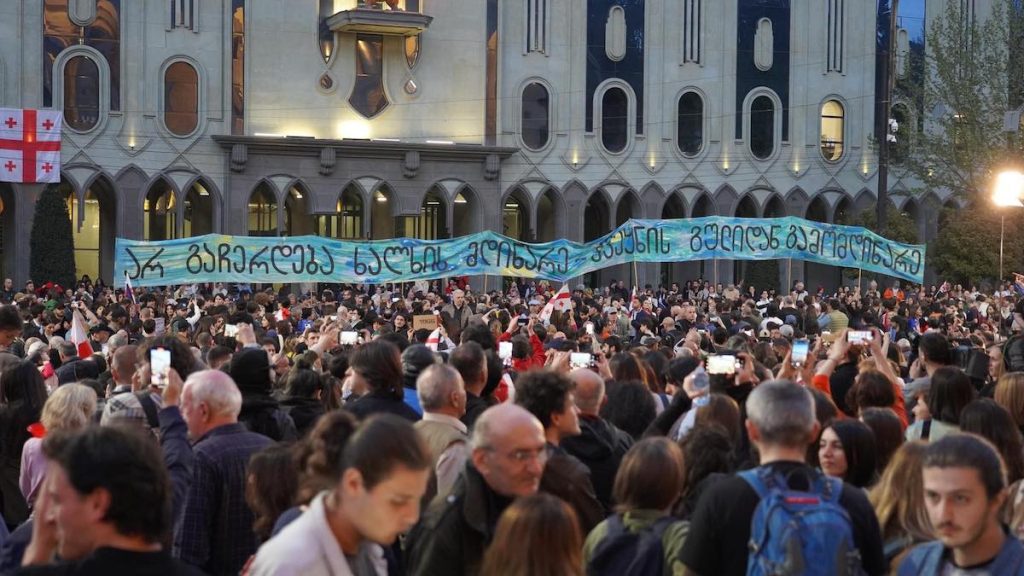
The rally saw a significant presence of youth, including school students. Familiar patriotic songs, often heard at protests in Georgia, resonated throughout the event. Additionally, the anthems of Georgia and the European Union were played several times.
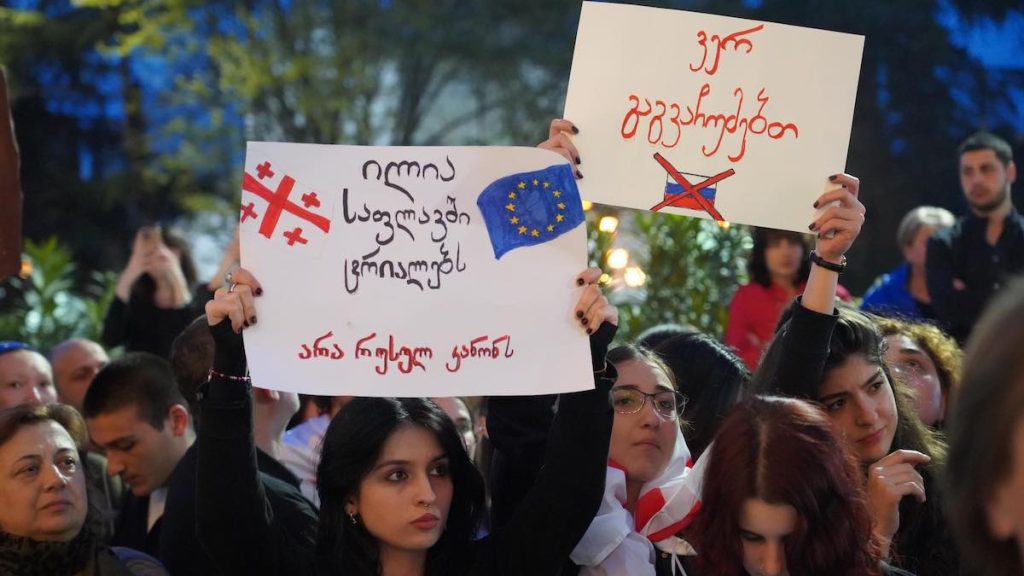
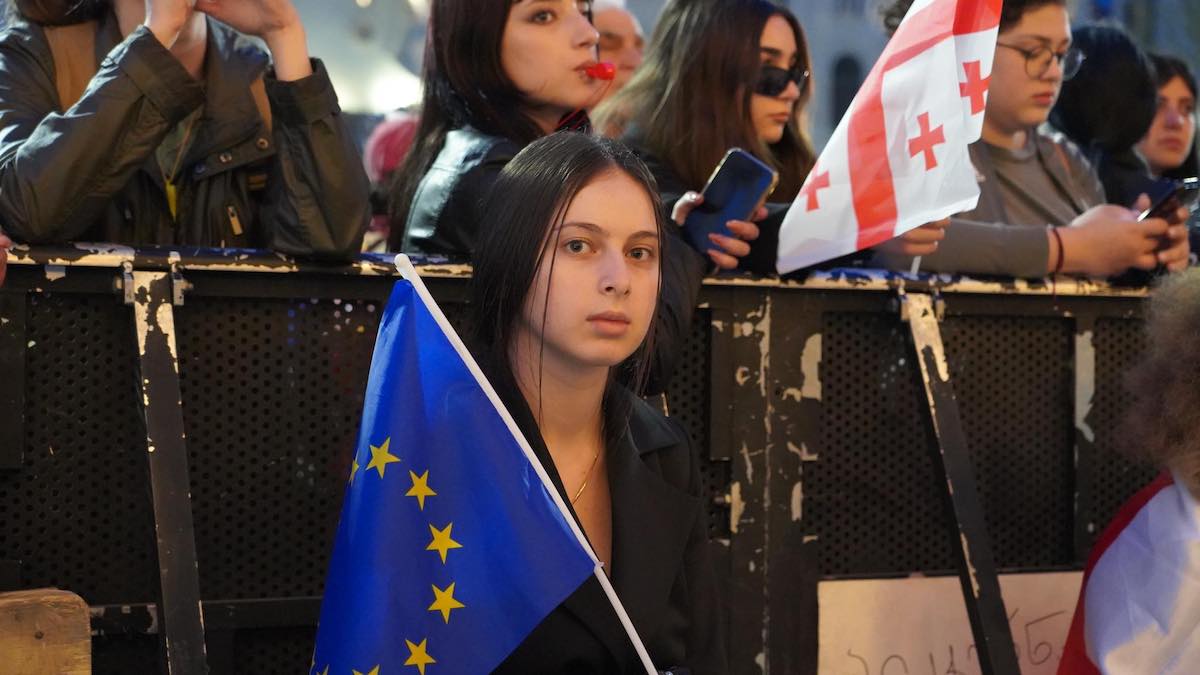
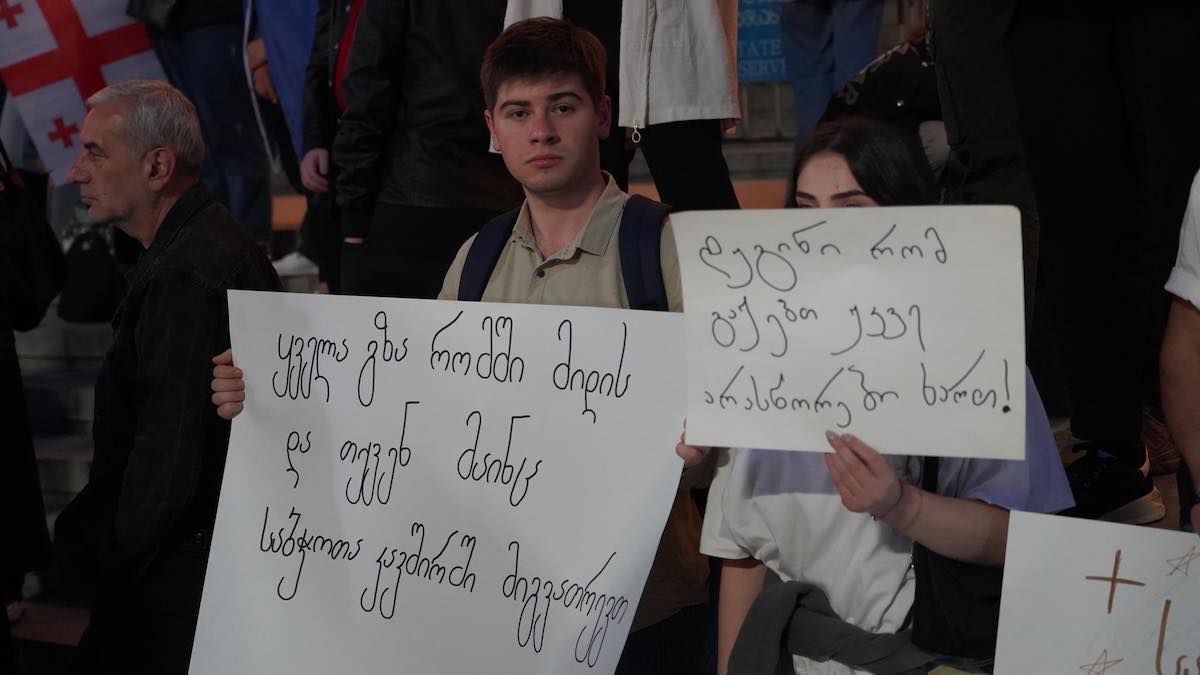
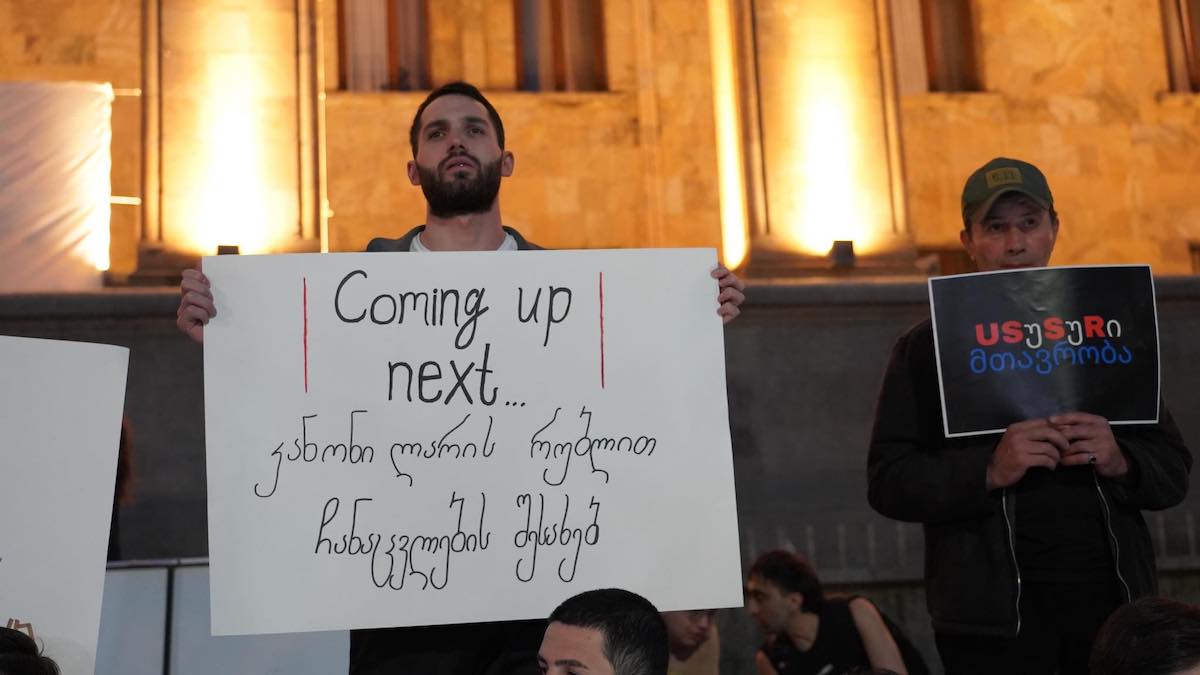
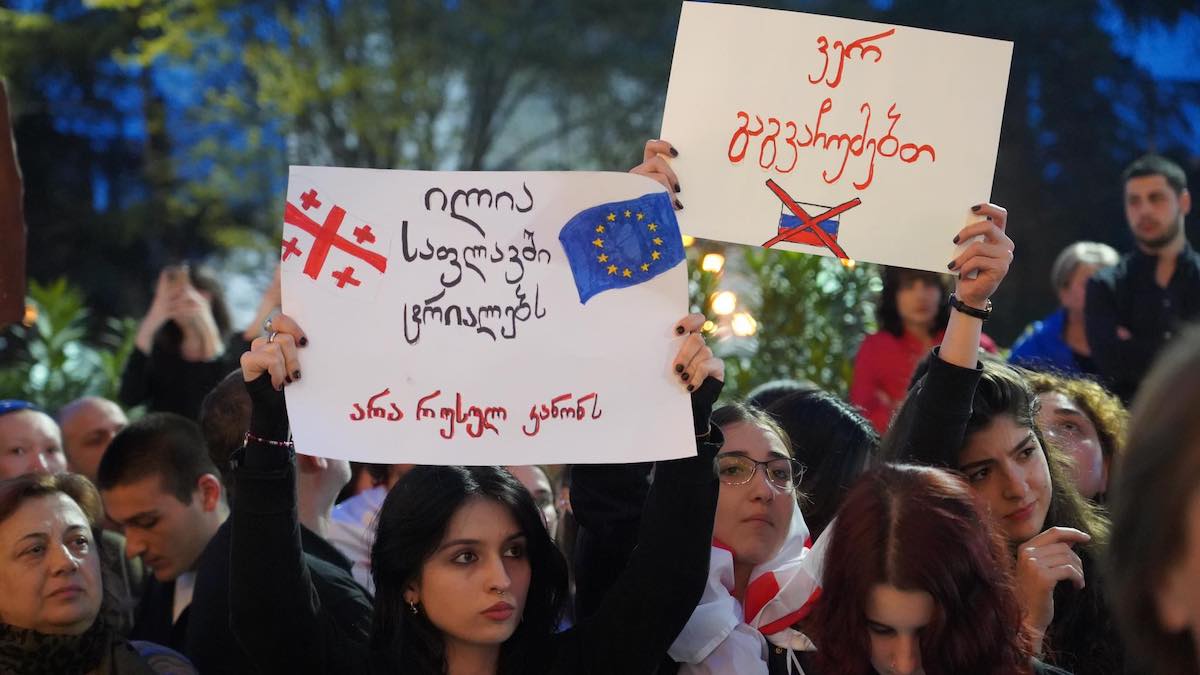
Celebrities and ordinary citizens took turns at the microphone—students, doctors, and others. The overarching message of all speeches was that through this law, the government is attempting to pull Georgia back into the Russian orbit and deprive the country of its European prospects.
Russian citizens were also present at the rally. One of them held a banner that read, “I want my country to leave Georgia (forever).”
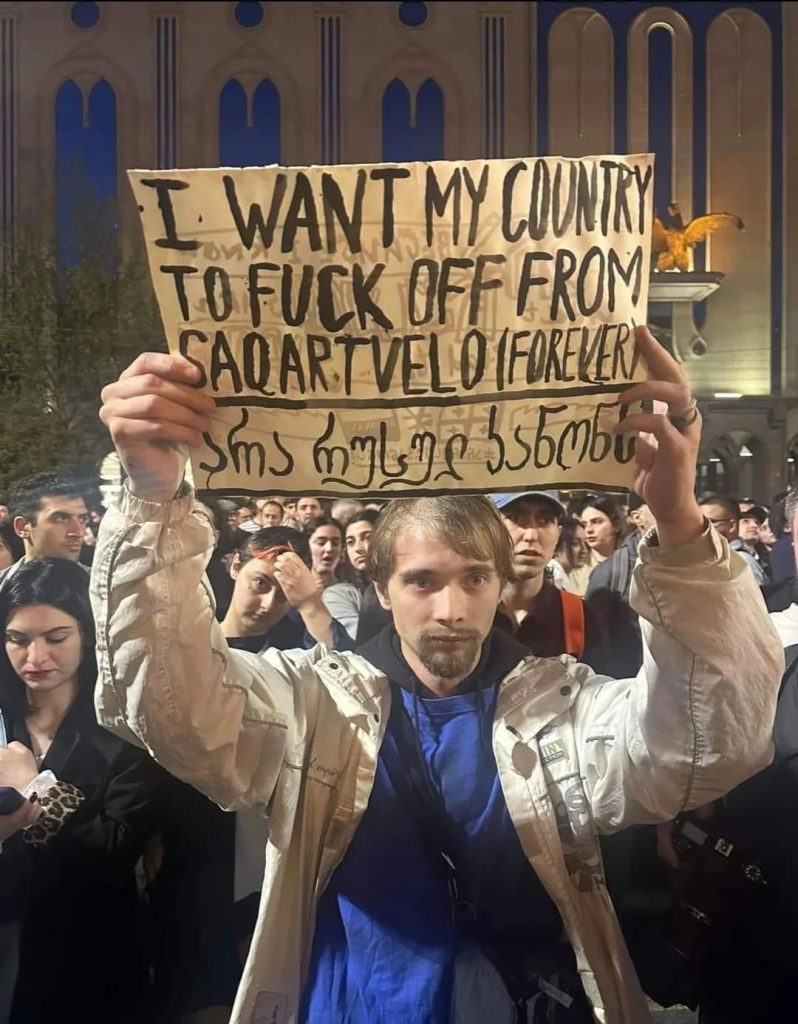
Simultaneously, a plenary session was taking place inside the parliament building to discuss the foreign agents law. Protesters chanted “Slaves!” and “Russians!” during the session.
The discussion of the bill took place in the parliament chamber amidst noise and debates.
According to parliamentary rules, the plenary session can only last until 9:00 PM (with exceptions), so the consideration of the bill was postponed to April 17. It is expected to be passed in the first reading.
This is the second attempt to pass this law. In March of last year, after mass protests and large-scale rallies, the ruling party “Georgian Dream” was forced to withdraw the bill, which had been passed in the first reading. A year later, the bill was reintroduced, sparking significant unrest and controversy in the country once again.
In the center of Tbilisi, near the parliament building, large-scale demonstrations against the “foreign agents” law have continued for a second day.
Tens of thousands of people have taken to the streets. Virtually the entire political spectrum, including both parliamentary and non-parliamentary opposition, as well as representatives from the civil sector, oppose the adoption of the so-called “Russian” law. Among the protesters are notable figures, writers, artists, cultural figures, scientists, renowned athletes, and even former supporters of the government.
One of the main critics and opponents of the law is the country’s president, Salome Zurabishvili, who described the government’s attempt to “enact this law against the will of the people and despite protests from partners” as a “provocation,” a “Russian strategy of destabilization,” and a “deviation from the European path.”
Late in the evening, after law enforcement officers used force against peaceful protesters, Zurabishvili addressed the president of the European Council, Charles Michel, and the president of France, Emmanuel Macron, asking them to discuss the current processes in Georgia at the upcoming European Council meeting scheduled for today, April 17.
All of Georgia’s international partners urge the “Georgian Dream” party not to adopt the controversial bill. Furthermore, European leaders directly state that this law is incompatible with European legislation and that if adopted, Georgia may lose its status as a candidate for EU membership, which the country was granted in December of last year.
“I want to be clear: the draft law ‘On the Transparency of Foreign Influence’ does not correspond to Georgia’s aspirations for the European Union and its trajectory towards membership. It will not bring Georgia closer to the European Union; instead, it will only push it further away,” wrote European Council president Charles Michel on X social media.
Despite unprecedented domestic and international opposition, the Georgian government asserts that it will not back down and will pass the law this time.
In Georgia, it is referred to as the “Russian law” because, according to the unanimous opinion of independent lawyers and experts, the Georgian draft law is analogous to the “Foreign Agents Law” adopted in Russia in 2012.
The Georgian government does not share this view and claims that the draft law has nothing in common with the Russian law and is intended only to limit the influx of shadow money into the country and strengthen its security.











